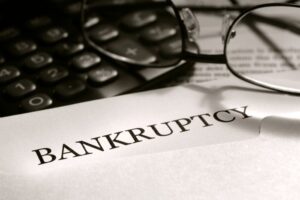 Things You Should Know When Deciding to File for Bankruptcy
Things You Should Know When Deciding to File for Bankruptcy
I have been a bankruptcy attorney for nearly 6 years now and have handled over 1000 cases. I started out working for the largest bankruptcy firm in the nation. Although that firm is now in its own bankruptcy, it taught me something that I have brought to my own bankruptcy practice here at Tran Bankruptcy Law. That is, clients need to know the truth about bankruptcy and the process.
What Bankruptcy Attorneys Might Not Tell You
Attorneys are in the business of providing a service in order to make money. This is our job. However, legal decisions, such as the decision to file for bankruptcy is a major decision in your life and you need to know the facts before you move forward. My first bit of caution is to ignore the catchy lines.
Bankruptcy Advertising and Fees
Ignore phrases such as “free consultation,” “payment plans available,” and “low cost” etc. If you are deciding to file bankruptcy, you should at least learn about bankruptcy and talk to a knowledgeable attorneys to determine whether bankruptcy is the right decision for you.
1) Learn about bankruptcy – you should learn the pros and cons of bankruptcy. These are discussed in the next few pages.
2) Find a knowledgeable attorney – speak to a number of attorneys. The only way to determine the difference between attorneys is to contact them and find out what they do and their process. See the next page for more details.
 Bankruptcy Pros and Cons
Bankruptcy Pros and Cons
Bankruptcy Cons
We are going to start with the cons, because the pros of bankruptcy sometimes look too enticing to read further.
1) Credit Rating after Bankruptcy – your Credit Repair Blog Series will take a hit. Many people will tell you that your credit score goes up after bankruptcy. This is true in some cases. This is due to the fact that your credit score may already be extremely low due to missed payments or a possible foreclosure in the past. After you file bankruptcy, you no longer owe any debt, so your credit score might jump up. However, do not be fooled. It will still be difficult to rent homes, get credit cards and/or buy a car or a house.
I have seen people buy homes and cars after bankruptcy, however, it is still difficult to get good rates or even qualify for a loan. Moreover, if you want to get the best rates you will have to be further removed from the bankruptcy and even pay higher down payments.
2) Possibility of losing your assets – there is a reason bankruptcy is called liquidation. Once you file bankruptcy, all of your property becomes part of the bankruptcy estate and the bankruptcy trustee is put in charge of this estate. In a Chapter 7 bankruptcy, the trustee determines whether it is worth it to liquidate or sell your assets. This means that they are determining whether they can make a profit after expenses and use it to pay your creditors.
For example, if you own a classic car, the trustee will determine the value of the car. He will take that value and subtract the costs of sale. If there is money left over and you cannot exempt the car from sale using State or Federal exemptions, then the trustee can sell the car and use the proceeds to pay your creditors. Therefore, before filing for bankruptcy, you should ask yourself whether you can liquidate your own property before you pay off your creditors.
3) The attorney cannot do everything for you – you must be proactive. The two hardest parts of bankruptcy is paying your attorney’s fees and providing your attorney with the documents required to complete the bankruptcy documents.
 Bankruptcy Pros and Cons
Bankruptcy Pros and Cons
Pingback: Bankruptcy | Surrendering a Vehicle | Santa Ana | The Law Offices of Chen & Tran
Pingback: Bankruptcy | Mortgage Statements | Santa Ana | The Law Offices of Chen & Tran
Pingback: Bankruptcy Lawyers | Riverside | The Law Offices of Chen & Tran
Pingback: The most commonly used Bankruptcy Law Firm | The Law Offices of Chen & Tran | Orange County Bankruptcy Attorneys
Comments are closed.